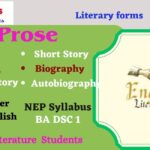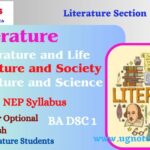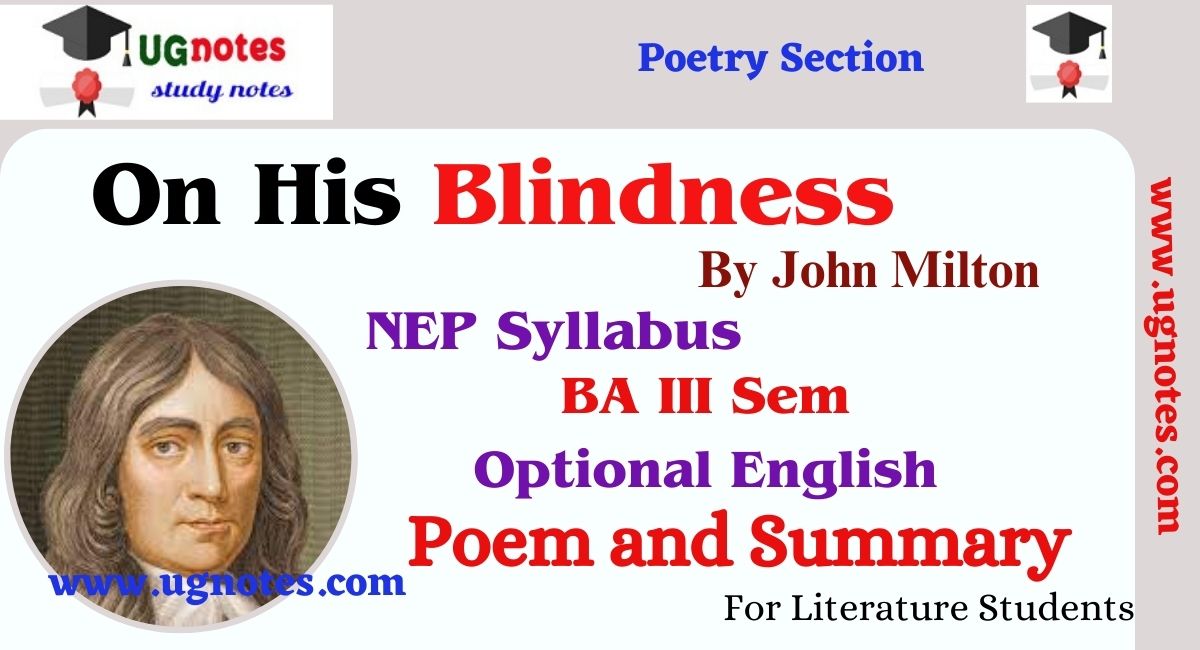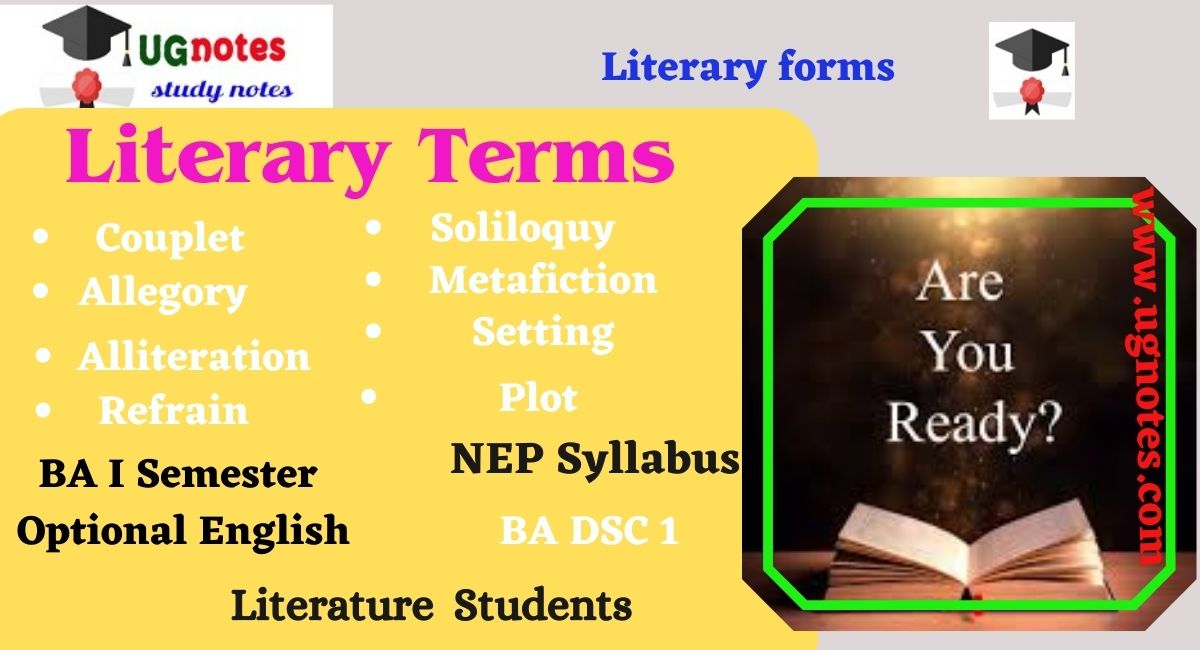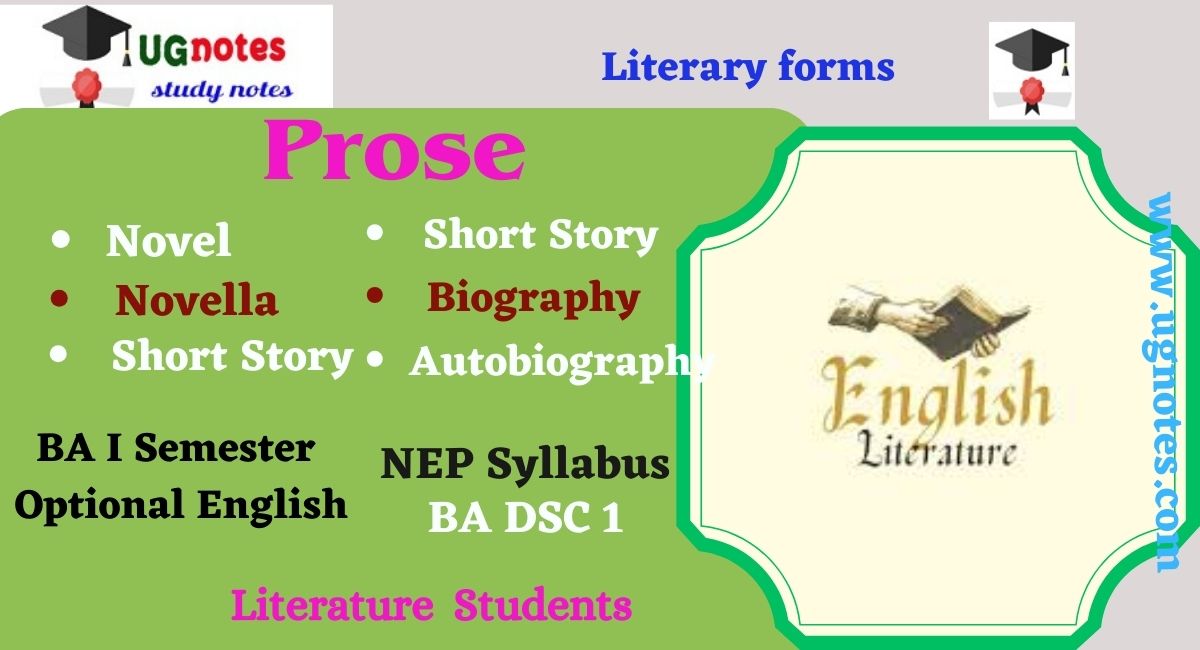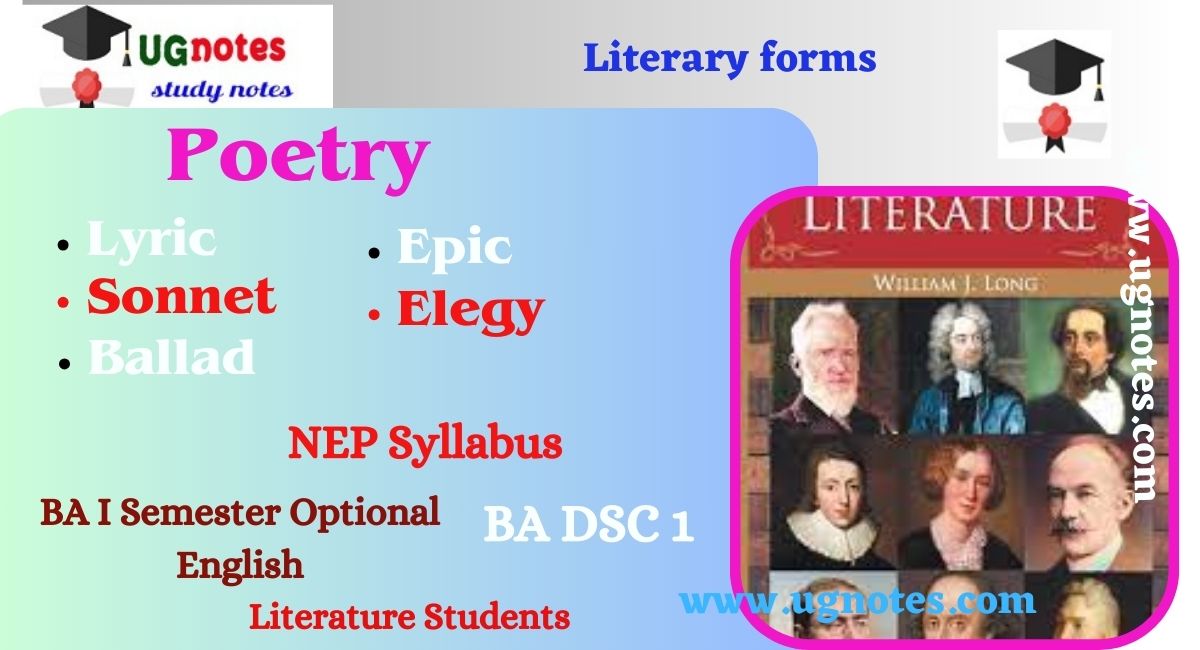Poem Text and Summary
BA III Semester Optional English Topic
Sonnet 19, ON HIS BLINDNESS By John Milton
SONNET 19 ON HIS BLINDNESS
By John Milton
About the Poet :-
John Milton was born on 9th December 1608 on Bread Street in central London at the height of the Protestant Reformation in England. In 1625 Milton took admission in Christ’s College of Cambridge University, from where he received a Bachelor’s Degree in 1629 and a Master’s Degree in 1632.
His famous poems are-
On His Blindness
On Shakespeare
How Soon Hath Time, and
Samson Agonistes, etc..
Milton’s Sonnet Style
Milton practiced both styles of sonnet writing – the Italian and the English styles. Milton’s sonnet structure was different from Shakespeare’s which consisted of three quatrains and a couplet. Milton’s Sonnet “On His Blindness” is a Petrarchan sonnet, a lyric poem with fourteen lines. This type of sonnet, popularised by the Italian priest Petrarch (1304-1374), has a rhyme scheme of abba, abba, cde, and cde. Another important aspect of the Shakespearean sonnet is that there is a turn, in the third quatrain, whereas in Milton’s sonnet style, you will recognise the turn in the middle of the eighth line. The central turn in the sonnet helps the thought process to turn on itself in the concluding lines of the poem.
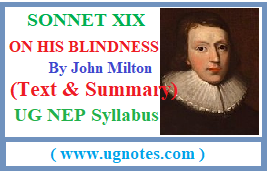
Poem Text
Sonnet 19 HIS BLINDNESS
When I consider how my light is spent
When I consider how my light is spent,
Ere half my days, in this dark world and wide,
And that one Talent which is death to hide
Lodged with me useless, though my Soul more bent
To serve therewith my Maker, and present
My true account, lest he returning chide;
“Doth God exact day-labour, light denied?”
I fondly ask. But patience, to prevent
That murmur, soon replies, “God doth not need
Either man’s work or his own gifts; who best
Bear his mild yoke, they serve him best. His state
Is Kingly. Thousands at his bidding speed
And post o’er Land and Ocean without rest:
They also serve who only stand and wait.”
Summary
Milton is reflecting on his steady loss of vision and he begins the poem with the assumption that he will not be able to serve God or fulfill God’s work because of the loss of his sense of sight. As we read further we find out that Milton has a change of thought and he starts believing that God still wants him to continue his work despite his rapidly deteriorating sight. Eventually, by the time we reach the end of the poem we realise that Milton believes very firmly that he is indeed carrying on with serving God like the angels.
He begins the sonnet by stating that half his life, he has spent serving humanity, but with losing his sight, the rest of his life will be dark. He will not be able to see anymore. He also comments on his one talent which was writing, which will now cease as he has become blind. In these lines we see the struggle of the poet in accepting the reality of his blindness.
In the second verse, he stops lamenting the loss of vision and begins wondering whether he can still serve God, or whether God still wants Milton to serve him? The poet’s agitation in the earlier lines is countered by “patience” which means calmness that is essential for dispassionate deliberation. He also wonders whether he is being foolish by desiring to serve God with his lack of sight. In truly Christian terms, Milton acknowledges the operations of Divine grace in human affairs. There is a perceptible change in tone – from nervous despair to an admission that God is both the giver and the withholder of gifts to man.
In the third verse, Milton realises that it is not man’s work that pleases God but the fact that a person is content and patient with what has been given to him, that is what pleases God. Milton also says that just as there are many angels working relentlessly to fulfill God’s works and then there are others who wait to do his bidding. The service of both types of angels is equally important to god. In other words what Milton is trying to say is that he has served God with his sight intact and can serve Him without sight as well. And both the ways in which he serves the Lord are important. He feels content that he is indeed serving God’s will even after losing his vision. Hence, the question that Milton asks seems to be foolish – how would he a blind poet be able to serve God’s will? The Christian’s acceptance of God’s dispensations and his abiding faith that God shall accept all form of service from his dependents gives the poem a triumphant note at the end.


